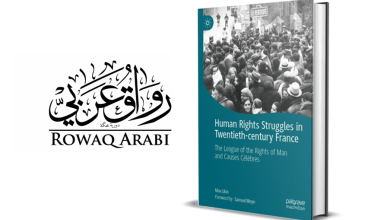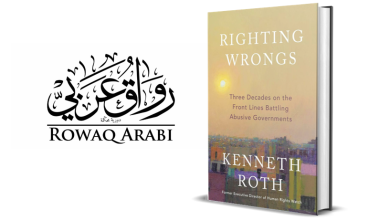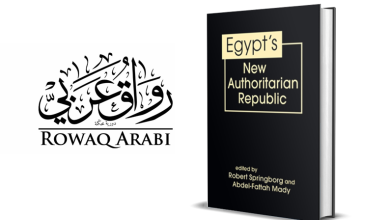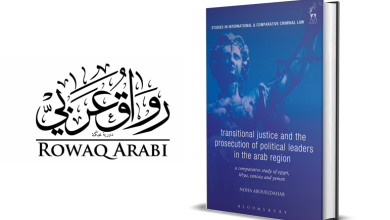Book Review: For the Love of Humanity by Ayça Çubukçu

The Vietnam anti-war movement defined a decade with its music, persistence and purpose. At least one feature of this movement continued to inspire others long after the last US troops had left Vietnam. Under the auspices of British philosopher Bertrand Russell, the 1967 Russell Tribunal investigated the conduct of US armed forces in Vietnam. The worldwide movement against another US campaign adopted a similar strategy. Following the example set in 1967, activists from around the world convened in Istanbul in 2003 to establish a citizens’ tribunal with the aim of assessing the Iraq invasion by the ‘Coalition of the Willing’. Over a period of two years, the World Tribunal on Iraq (WTI) held twenty public sessions across the globe to assess the invasion and occupation of Iraq by the US and its allies.
Ayça Çubukçu, an anthropologist and Co-Director of the Human Rights programme at the LSE Department of Sociology, meticulously followed the WTI’s work. For the Love of Humanity: The World Tribunal on Iraq, a 224-page book published by the University of Pennsylvania Press in 2018, is a first-hand account of the Tribunal’s activities and an outline of the fundamental questions it had to face. To chronicle the WTI’s story, Çubukçu adopted an ethnographic methodology: she immersed herself in the work of the WTI, to qualitatively observe the tribunal’s practices and actions.[1] Moreover the writer has combined her personal observations with close readings of political theory and philosophy. As a result, I believe that the WTI’s story is aptly interwoven with, for instance, Michel Foucault’s reflections on popular justice, Jürgen Habermas’ ideas on democracy and Étienne Balibar’s thoughts on sovereignty. In four chapters and an intermezzo, Çubukçu shares the privileged perspective of a participant to the WTI. She does not only build the narrative on her own observations, but also makes use of primary sources, like the transcripts of the founding meeting email texts from the WTI’s Listserv.
In this way, the author poignantly illustrates how conflicting viewpoints, ideologies and goals have moulded the WTI. One particular dichotomy constituted a key issue at the WTI’s founding session, and is therefore a recurring thread in the book. From the onset, the WTI faced an impasse between the so-called legalist perspective and the political perspective.
First, the legalist approach conceived international law to be the lingua franca of the emerging WTI. The reason to align the WTI with international law is self-evident. By placing both its work and procedures within the international legal framework, the WTI would secure its own legitimacy to the greatest extent possible.[2] After all, the ‘credibility’ and ‘neutrality’ of international law would allow the WTI to transcend political divisions, and to become more than a mere anti-war campaign. However, by categorising facts under abstract legal denominators, this approach allegedly risked disregarding the particularities of the Iraqi case. For instance, legalists did not address the actual Iraqi resistance against the US occupation, but rather resorted to the general right of self-determination. Such ignorance of the actual struggle against occupation at the behest of abstract principles arguably risked severing the tribunal’s ties with political reality.
The political perspective provided a response to the defenders of international law. Rather than mimicking existing institutions and procedures, this vision intended to root the WTI’s legitimacy in the global anti-war movement. In their view, the massive mobilisation of ‘world citizens’ rather than the legal lexicon sufficed to establish a legitimate tribunal. Moreover, adherents of the political perspective argued that the WTI was partisan from the onset. It could never feign being a neutral institution of international law, given its bias against the US invasion of Iraq. Eventually, pragmatism prevailed. The WTI’s Platform Text, which is included in the book’s appendices, did not truly resolve the rivalry between both positions. Çubukçu elegantly explains why this is unsurprising.
In spite of the heated debates, the legalist and political perspectives share a degree of affinity. After all, both views can resort to legal cosmopolitanism, or “the institutionalisation of global civil society and the development of a cosmopolitan law and order based on the universality of human rights.”[3] The book amply explores the manifestations of this ambivalence. One of them can be discerned in the work of global NGOs. Amnesty International, for instance, supported the writing of a new “human rights-based” constitution for Iraq, even though many deemed the occupational government itself to be illegitimate. Moreover, the book references the 1999 NATO intervention in Kosovo. In fact, among the opponents of the Iraq invasion were staunch supporters of the bombings in Kosovo. Finally, the book remarks that the UN doctrine of the Responsibility to Protect (R2P) further endorses the paradoxical discourse of “human rights hawks”: the protection of humanity warrants military intervention.[4]
Çubukçu points out that amidst the debates and inconsistencies, both the international community and global civil society easily overlook the opinion of the Iraqis themselves. Indeed, even at the WTI’s founding meeting, allegedly no one seemed explicitly concerned about how the Iraqis would perceive the Tribunal. In other words, universal rights continue to prevail over the autonomy of a people. This difficulty is the main question of the concluding chapter, in which Çubukçu juxtaposes law’s empire to empire’s law. The former, which entails the promotion of universal human rights, arguably is a reinvention of the latter: old-fashioned imperialism. Reflecting on this intimate relationship between international law and imperialism, Çubukçu draws insights from the seminal work by Antony Anghie: Imperialism, Sovereignty and the Making of International Law.[5]
Taking into account the author’s critical questioning of the international legal order, at least some omittances are remarkable. Even though the book was published in 2018 – well over a decade since the WTI’s concluding session – the book’s scope remains strictly confined to the Tribunal’s activities. In hindsight, however, a lot could have been said about the Iraq War, its consequences and the WTI’s legacy, if any. First, Iraq has witnessed a civil war, and conflict remains prevalent in the country. Second, at least the UK conducted an official, self-reflecting inquiry, the result of which was damning for the country’s involvement in the war. And last, regional events only support the book’s criticism of the international legal order. NATO’s swift intervention in Libya, for example, was grounded on humanitarian reasons, while the international community still fails to address other conflicts, such as the Syrian and Yemeni civil wars.
Even within the WTI’s work, the book maintains restrictions. Çubukçu mainly discusses the opening and closing sessions of the WTI, which both took place in Istanbul. Furthermore, she discusses at length the WTI’s Brussels Session of April 2004 (fittingly called the BRussells Tribunal). The other sessions that took place around the world, however, only receive cursory attention at best. Nonetheless the author has made a compelling contribution to the literature on the WTI. She goes beyond the book published by Müge Gürsoy Sokmen in 2008, World Tribunal on Iraq: Making the Case Against War, which only covers the WTI’s findings as presented at its closing session.[6] Moreover, Çubukçu’s expression of alternative voices make the book a recommendable read for international law academics and professionals,, for the book will without a doubt induce a critical reflection on their field of study. Perhaps therein lies the WTI’s activist message: an international order that incoherently condones violence for an alleged love of humanity, is in need of reassessment.
[1] Gerson, Janet (2019) ‘For the love of Humanity: The World Tribunal on Iraq’, The Middle East Journal 73.3, pp. 496-498.
[2] Quigley, John (2019) ‘For the Love of Humanity: The World Tribunal on Iraq by Ayça Çubukçu (review)’, Human Rights Quarterly 41.3, pp. 769-772.
[3] Çubukçu, Ayça (2018) For the Love of Humanity: The World Tribunal on Iraq (Philadelphia: University of Pennsylvania Press), p. 42, Kindle edition.
[4] Gerson, Janet (2019) ‘For the love of Humanity’.
[5] Anghie, Antony (2005), Imperialism, Sovereignty, and the making of International Law (Cambridge: Cambridge University Press).
[6] Sokmen, Müge Gürsoy (2008), World Tribunal on Iraq: Making the Case against War (Northampton Massachusettes: Olive Branch Press).
Read this post in: العربية





